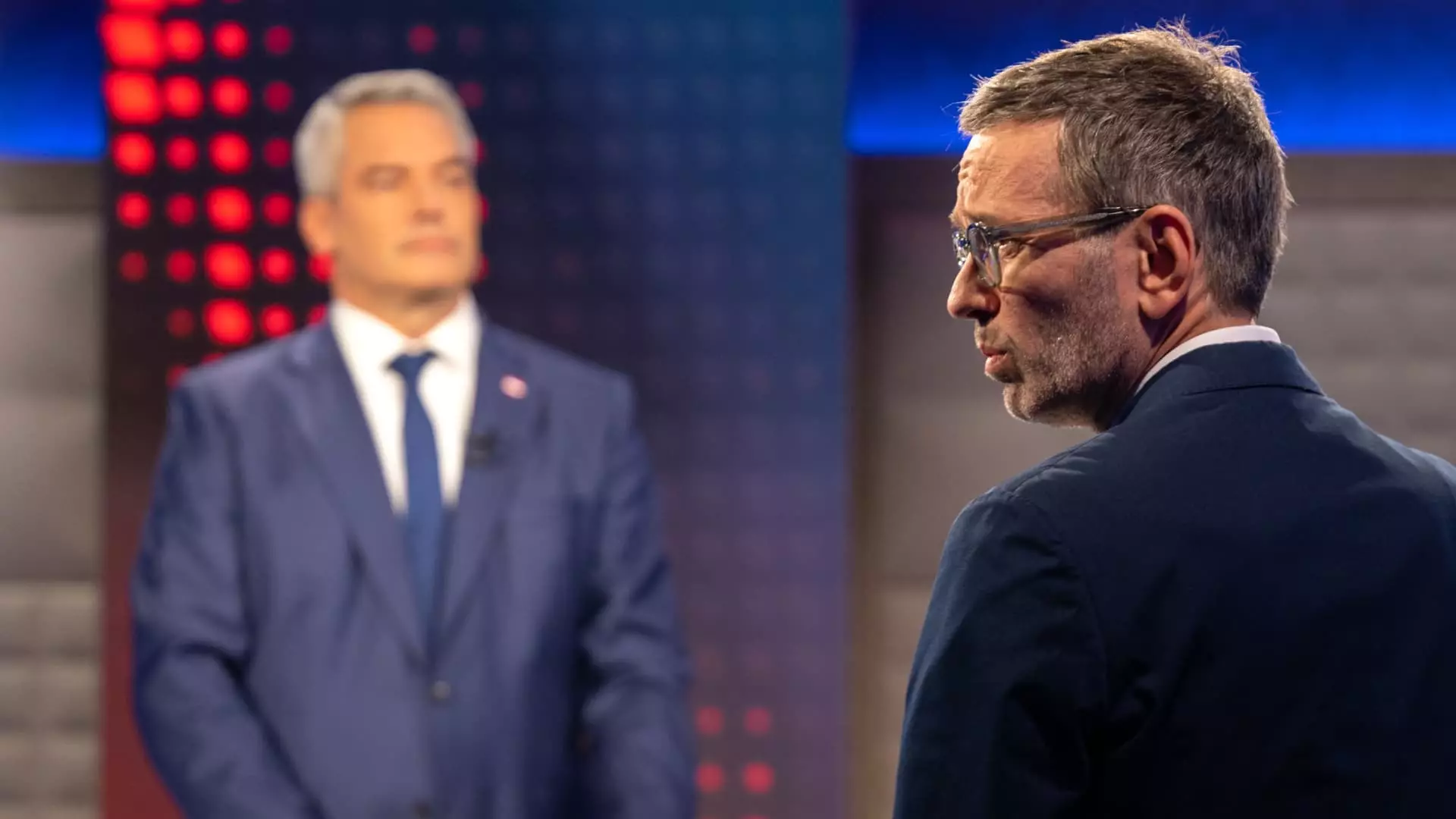The winds of change are blowing through Austria as the nation heads into a crucial parliamentary election, with the far-right Freedom Party (FPO) poised for a potential historic victory. Led by Herbert Kickl, the party has focused much of its campaign rhetoric on immigration, tapping into the public’s discontent regarding the economic landscape characterized by inflation hitting above the European Union average. This article delves into the intricacies of the electoral landscape, the role of major political players, and the implications of a potential shift towards far-right policies in Austria.
The FPO, established in the 1950s, has been vocal about its grievances, primarily centering on immigration and economic dissatisfaction among voters. Herbert Kickl, the party’s leader, has promised comprehensive and stringent measures to curb immigration, including proposals to construct a “Fortress Austria.” His vision aims to fortify the nation’s borders against immigrants, a strategy that resonates with many voters who perceive immigration as a direct threat to Austrians’ way of life. The fact that the FPO has consistently remained at the forefront of polls for over a year indicates a significant shift in the political climate, with the electorate increasingly swayed by promises of a tougher stance on immigration.
Kickl’s campaign is marked by a sense of urgency and an assertive populism that speaks directly to voter frustrations. His rhetoric positions the people against a perceived failing system—framing the election as a battle between national aspirations and political establishment failures. This narrative is highly potent, particularly during times of economic instability, as it presents an opportunity for the electorate to express dissatisfaction.
The Conservative Challenge
In stark contrast stands Chancellor Karl Nehammer and his Austrian People’s Party (OVP), which, despite a resilient campaign, appears to be faltering in the face of mounting public discontent. Nehammer attempts to distill a sense of stability, presenting himself as a statesman amidst rising radical sentiments. Nevertheless, his party has struggled to distinguish itself from the FPO on various issues, particularly immigration and tax reforms.
Nehammer’s strategies include positioning himself as a centrist alternative to Kickl’s extremism while trying to reclaim the narrative on governance. His recent response to flooding in Austria has given him a moment of visibility, but the question remains whether it can counterbalance the FPO’s populist appeal. As both parties vie for the same electorate, the battle lines are increasingly drawn, and Nehammer’s remarks emphasize a commitment to combating chaos, a clear rebuttal to Kickl’s growing influence.
Regardless of the electoral outcome, neither the FPO nor the OVP is expected to secure an absolute majority, leading to the necessity for coalition-building. This is where the complexities of Austrian politics come into play. For the FPO, the logical coalition partner appears to be the OVP, creating potential implications for national policies, particularly on immigration. However, Nehammer has explicitly stated that while he remains open to discussing partnerships, he draws a line when it comes to working with Kickl directly in any governing capacity.
This unwillingness hints at internal conflicts within the traditional conservative framework that struggles to reconcile its base’s desires with a need for broader electoral appeal. Nehammer’s vision may thus face significant hurdles, as the electorate’s thirst for radical change often eclipses the merits of stability.
A Crossroads for Austrian Democracy
The upcoming election encapsulates a pivotal moment in Austria’s political milieu, where the far-right’s populism threatens to reshape traditional politics. As voters prepare to head to the polls, the outcome will not only set the trajectory for the country’s immediate governance but also resonate on a broader scale across Europe, where similar sentiments are brewing.
The Austrian parliamentary election stands at a critical juncture—one that will determine whether immigration and economic grievances will continue to propel the FPO to new heights or if a centrist platform can stave off the allure of radical change. Ultimately, the election will prove whether the Austrian electorate prioritizes stability over chaos, or if Kickl’s promise of a new political reality resonates sufficiently to alter the course of the nation’s history.


Leave a Reply